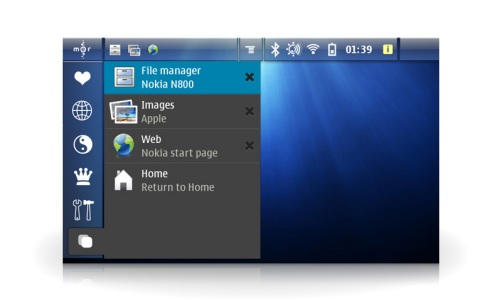ldc and libtango-gdc-dev packages for ubuntu/debian in ppa
Dubuntu
Hi, ldc and libtango-gdc-dev are in d language packagers ppa from some time ago now.
Here is the way you can install ldc 🙂 (the same applies for libtango-gdc-dev)
goshawk@earth:~$ sudo apt-key adv –recv-keys –keyserver keyserver.ubuntu.com 0xac6c83ad38a437abfc26a14af273e44ecde3fa2e
[sudo] password for goshawk:
Executing: gpg –ignore-time-conflict –no-options –no-default-keyring –secret-keyring /etc/apt/secring.gpg –trustdb-name /etc/apt/trustdb.gpg –keyring /etc/apt/trusted.gpg –recv-keys –keyserver keyserver.ubuntu.com 0xac6c83ad38a437abfc26a14af273e44ecde3fa2e
gpg: requesting key CDE3FA2E from hkp server keyserver.ubuntu.com
gpg: key CDE3FA2E: public key “Launchpad PPA for D Programming Language Applications Packagers” imported
gpg: Total number processed: 1
gpg: imported: 1 (RSA: 1)
goshawk@earth:~$ sudo nano /etc/apt/sources.list
goshawk@earth:~$ sudo apt-get update
Hit http://it.archive.ubuntu.com jaunty Release.gpg
[…]
Fetched 78.0kB in 1s (77.0kB/s)
Reading package lists… Done
goshawk@earth:~$ sudo apt-get install ldc
Reading package lists… Done
Building dependency tree
Reading state information… Done
The following extra packages will be installed:
libconfig++6
The following NEW packages will be installed:
ldc libconfig++6
0 upgraded, 2 newly installed, 0 to remove and 0 not upgraded.
Need to get 7525kB of archives.
After this operation, 32.5MB of additional disk space will be used.
Do you want to continue [Y/n]?
Get:1 http://ppa.launchpad.net jaunty/main libconfig++6 1.3.1-1ubuntu1 [38.8kB]
Get:2 http://ppa.launchpad.net jaunty/main ldc 0.9.1~20090403.dfsg-0ubuntu2 [7486kB]
Fetched 7525kB in 7s (995kB/s)
Selecting previously deselected package libconfig++6.
(Reading database … 120004 files and directories currently installed.)
Unpacking libconfig++6 (from …/libconfig++6_1.3.1-1ubuntu1_amd64.deb) …
Selecting previously deselected package ldc.
Unpacking ldc (from …/ldc_0.9.1~20090403.dfsg-0ubuntu2_amd64.deb) …
Processing triggers for man-db …
Setting up libconfig++6 (1.3.1-1ubuntu1) …Setting up ldc (0.9.1~20090403.dfsg-0ubuntu2) …
Processing triggers for libc6 …
ldconfig deferred processing now taking place
goshawk@earth:~$
Well, now you have ldc installed.
I just did a d program to fetch the lastest ldc trunk, package it, and put on ppa. I’m testing it in these days, and when my exams will finish (soon 🙂 ) daily packages will be available! 🙂
Bye.




